Argentina’s scientific community is reeling after the election of hard-right populist Javier Milei as president on 19 November. Milei has promised to eliminate the country’s science ministry and dissolve the government agency that funds almost all research at Argentinian universities. He takes office on 10 December.
Milei’s presidential rival – the nation’s finance minister, Sergio Massa – was leading in the general election last month, after which the two went to a run-off. At the time, researchers in the country expressed relief because it appeared that Massa was poised to beat Milei. However, most votes that had gone to other candidates in the general election ended up being cast for Milei, and he won with approximately 56% of the vote to Massa’s 44%. Those percentages represent an estimated lead of about 3 million votes for Milei, and Massa quickly conceded defeat.
‘Milei’s triumph is not good news for science, universities, public health and education, environmental policies and human rights in Argentina,’ states Alberto Kornblihtt, a molecular biologist and emeritus professor at the University of Buenos Aires.
If Milei keeps his promises, not only will research cuts be ‘huge’ but institutions like the National Scientific and Technical Research Council (Conicet), which funds the work of about 12,000 scientists at 300 research institutions, risks being ‘dismantled’, warns Kornblihtt. ‘The obvious consequence [will be a] brain drain,’ he adds.
María del Pilar Buera, an organic chemistry professor at the University of Buenos Aires and senior researcher at Conicet, agrees. ‘I am quite shocked,’ she tells Chemistry World. ‘I am worried not only about my work, but also the youngest people in the lab and many others – perhaps they might go to another country.’
Del Pilar Buera and others fear that young scientists might leave because they don’t see any future in Argentina. She has received many messages from colleagues calling the election outcome terrible and saying that they don’t know what to do. ‘I hope this is not as bad as we think, but many of them are very worried,’ del Pilar Buera states.
Research at risk
Omar Azzaroni, an adjunct chemistry professor at La Plata National University and Conicet member, is similarly apprehensive. ‘During the last weeks, I have talked to several young scientists and they are thinking about probably moving in a different direction,’ he tells Chemistry World. ‘In most of these cases, this new direction is leaving academia and going to the private sector. Some of them are thinking about professional development overseas.’
There is general agreement that Milei’s plan to eliminate the science ministry will hurt research in the country. The science ministry now faces a downgrade and could be lumped in with a new human resources ministry that will include education and culture, explains Gerardo Burton, an emeritus chemistry professor at the University of Buenos Aires.
However, in recent weeks Milei and his team appear to have backpedalled on plans to disband Conicet. Now, his team has indicated more generally that the agency will be reassessed and its structure reorganised.
Beyond financing the work of researchers in Argentina, Conicet also supports another 8000 PhD students, administrative staff and research technicians, according to Burton. ‘The agency funds over 20,000 people total, so it’s not something that you can just make disappear,’ Burton states.
It appears that Milei’s administration will significantly reduce funding for science, and Burton cautions that this will likely hurt research projects that are underway, the ability of labs to maintain their scientific instruments and fellowships.
But there is a sense that it is too early to draw any firm conclusions as Milei’s positions, including on science, have changed substantially over the past few weeks and are expected to continue to evolve.
Many of the chemists and other researchers who spoke to Chemistry World want to engage with Milei and his government in the hopes of helping to inform his understanding about the importance of basic research. ‘If we start with bad relations from the beginning that will be bad, so I hope we can get a kind of dialogue with the new government – that would be the best thing because otherwise things will be even worse,’ warns del Pilar Buera.
At the same time, some take comfort in the fact that Argentina’s Congress is a gatekeeper. ‘I would expect that Congress will be important now in defending science,’ says Burton. He notes that Milei’s ring-wing party occupies very few seats in either congressional house. Therefore, he will need the support of politicians in other parties to pass laws or executive orders. ‘Milei does not have enough people in Congress to get these approved, so he will definitely need to negotiate,’ Burton states.





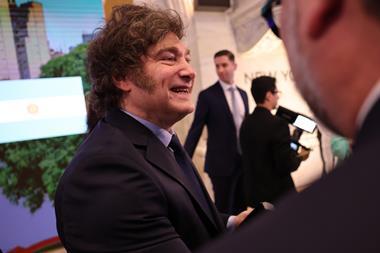
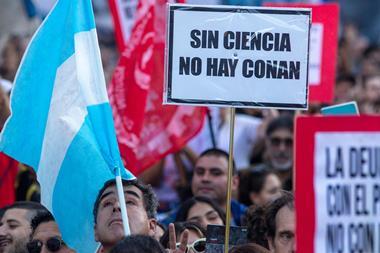
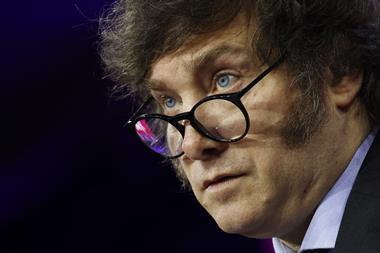
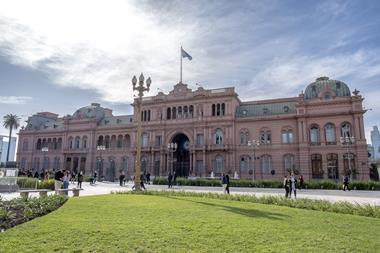
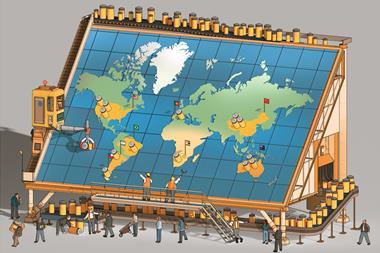







1 Reader's comment